Deck 20: More About Amines Heterocylic Compounds
Question
Question
Question
Question
Question
Question
Question
Question
Question
Question
Question
Question
Question
Question
Question
Question
Question
Question
Question
Question
Question
Question
Question
Question
Question
Question
Question
Question
Question
Question
Question
Question
Question
Question
Question
Question
Question
Question
Question
Question
Question
Question
Question
Question
Question
Question
Question
Question
Question
Question
Question
Question
Question
Question
Question
Question
Question
Question
Question
Question
Question
Question
Question
Question
Question
Question
Question
Question
Question
Question
Question
Question
Question
Question
Question
Question
Question
Question
Question
Question

Unlock Deck
Sign up to unlock the cards in this deck!
Unlock Deck
Unlock Deck
1/115
Play
Full screen (f)
Deck 20: More About Amines Heterocylic Compounds
1
What is the systematic name for the following compound? 
A)aziridine
B)oxetane
C)oxirane
D)azetidine
E)thiirane

A)aziridine
B)oxetane
C)oxirane
D)azetidine
E)thiirane
oxirane
2
What is the systematic name of the following compound? ![<strong>What is the systematic name of the following compound? </strong> A)1-azabicyclo[2.2.2]heptane B)2-azatricyclo[2.2.2]heptane C)2-azabicyclo[2.2.2]octane D)2-azabicyclo[2.2.2]heptane E)2-azabicyclo[2.2.0]octane](https://storage.examlex.com/TB1830/11ea7d6e_0735_4f02_8568_5d42ac4c5146_TB1830_00_TB1830_00.jpg)
A)1-azabicyclo[2.2.2]heptane
B)2-azatricyclo[2.2.2]heptane
C)2-azabicyclo[2.2.2]octane
D)2-azabicyclo[2.2.2]heptane
E)2-azabicyclo[2.2.0]octane
![<strong>What is the systematic name of the following compound? </strong> A)1-azabicyclo[2.2.2]heptane B)2-azatricyclo[2.2.2]heptane C)2-azabicyclo[2.2.2]octane D)2-azabicyclo[2.2.2]heptane E)2-azabicyclo[2.2.0]octane](https://storage.examlex.com/TB1830/11ea7d6e_0735_4f02_8568_5d42ac4c5146_TB1830_00_TB1830_00.jpg)
A)1-azabicyclo[2.2.2]heptane
B)2-azatricyclo[2.2.2]heptane
C)2-azabicyclo[2.2.2]octane
D)2-azabicyclo[2.2.2]heptane
E)2-azabicyclo[2.2.0]octane
2-azabicyclo[2.2.2]octane
3
What results when cis-2-butene is subjected to the following reaction sequence: (1) Cl2, H2O, (2) NaOH, (3) H3O+?
A)a meso epoxide
B)a 1:1 mixture of enantiomeric epoxides
C)a meso diol
D)a 1:1 mixture of enantiomeric diols
E)2-butanol
A)a meso epoxide
B)a 1:1 mixture of enantiomeric epoxides
C)a meso diol
D)a 1:1 mixture of enantiomeric diols
E)2-butanol
a 1:1 mixture of enantiomeric diols
4
What is the product of the following reaction? 

A)I
B)II
C)III
D)IV
E)V


A)I
B)II
C)III
D)IV
E)V

Unlock Deck
Unlock for access to all 115 flashcards in this deck.
Unlock Deck
k this deck
5
What is the major product of the following reaction? 
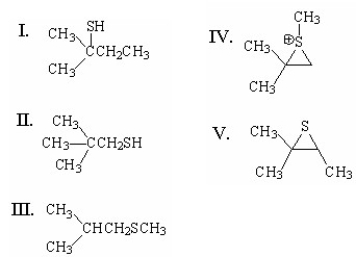
A)I
B)II
C)III
D)IV
E)V


A)I
B)II
C)III
D)IV
E)V

Unlock Deck
Unlock for access to all 115 flashcards in this deck.
Unlock Deck
k this deck
6
Which of the following is the structure of 1,4-dioxane? 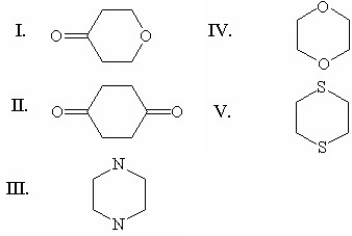
A)I
B)II
C)III
D)IV
E)V

A)I
B)II
C)III
D)IV
E)V

Unlock Deck
Unlock for access to all 115 flashcards in this deck.
Unlock Deck
k this deck
7
Provide a structural representation of oxetane.

Unlock Deck
Unlock for access to all 115 flashcards in this deck.
Unlock Deck
k this deck
8
Provide the major organic product in the reaction below. 


Unlock Deck
Unlock for access to all 115 flashcards in this deck.
Unlock Deck
k this deck
9
What is the major product of the following reaction? 
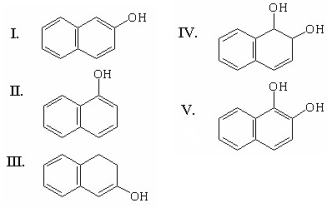
A)I
B)II
C)III
D)IV
E)V


A)I
B)II
C)III
D)IV
E)V

Unlock Deck
Unlock for access to all 115 flashcards in this deck.
Unlock Deck
k this deck
10
What is the major product of the following reaction? 
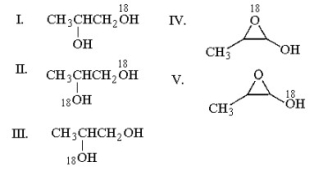
A)I
B)II
C)III
D)IV
E)V


A)I
B)II
C)III
D)IV
E)V

Unlock Deck
Unlock for access to all 115 flashcards in this deck.
Unlock Deck
k this deck
11
What is the systematic name for the following compound? 
A)aziridine
B)oxetane
C)oxirane
D)azetidine
E)thiirane

A)aziridine
B)oxetane
C)oxirane
D)azetidine
E)thiirane

Unlock Deck
Unlock for access to all 115 flashcards in this deck.
Unlock Deck
k this deck
12
What is the major product of the following reaction? 
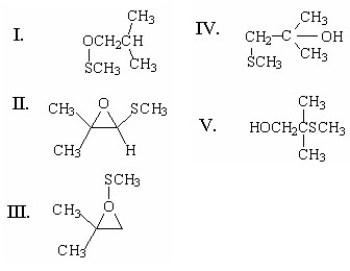
A)I
B)II
C)III
D)IV
E)V


A)I
B)II
C)III
D)IV
E)V

Unlock Deck
Unlock for access to all 115 flashcards in this deck.
Unlock Deck
k this deck
13
The major organic product in the following reaction ________. 
A)is an N-acyl pyrrolidine
B)results from an electrophilic aromatic substitution reaction
C)results from a nucleophilic aromatic substitution reaction
D)is a m-disubstituted benzene derivative
E)both B and D

A)is an N-acyl pyrrolidine
B)results from an electrophilic aromatic substitution reaction
C)results from a nucleophilic aromatic substitution reaction
D)is a m-disubstituted benzene derivative
E)both B and D

Unlock Deck
Unlock for access to all 115 flashcards in this deck.
Unlock Deck
k this deck
14
Which of the following is a tertiary amine? 
A)I
B)II
C)III
D)IV

A)I
B)II
C)III
D)IV

Unlock Deck
Unlock for access to all 115 flashcards in this deck.
Unlock Deck
k this deck
15
What is the major product of the following reaction? 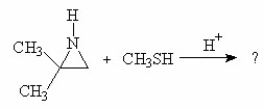
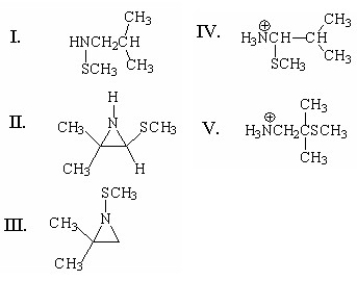
A)I
B)II
C)III
D)IV
E)V


A)I
B)II
C)III
D)IV
E)V

Unlock Deck
Unlock for access to all 115 flashcards in this deck.
Unlock Deck
k this deck
16
What is the stereochemistry of the product in the acid hydrolysis of trans-2,3-epoxybutane?

Unlock Deck
Unlock for access to all 115 flashcards in this deck.
Unlock Deck
k this deck
17
Which of the following is the structure for azetidine? 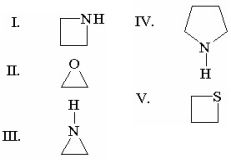
A)I
B)II
C)III
D)IV
E)V

A)I
B)II
C)III
D)IV
E)V

Unlock Deck
Unlock for access to all 115 flashcards in this deck.
Unlock Deck
k this deck
18
Which of the following is the structure for N-methylpiperidine? 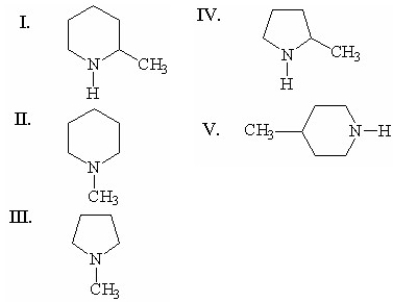
A)I
B)II
C)III
D)IV
E)V

A)I
B)II
C)III
D)IV
E)V

Unlock Deck
Unlock for access to all 115 flashcards in this deck.
Unlock Deck
k this deck
19
Provide a structural representation of cis-3-ethyl-1,2-epoxycyclopentane.

Unlock Deck
Unlock for access to all 115 flashcards in this deck.
Unlock Deck
k this deck
20
Draw the structure of piperidine.

Unlock Deck
Unlock for access to all 115 flashcards in this deck.
Unlock Deck
k this deck
21
What is the major alkene formed in the following Hofmann elimination? 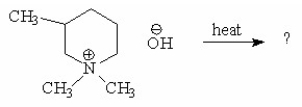
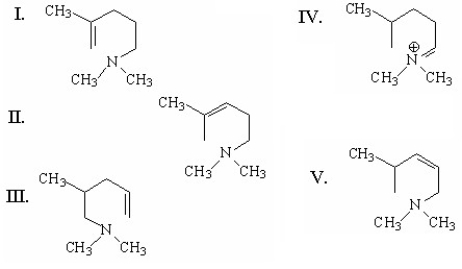
A)I
B)II
C)III
D)IV
E)V


A)I
B)II
C)III
D)IV
E)V

Unlock Deck
Unlock for access to all 115 flashcards in this deck.
Unlock Deck
k this deck
22
Circle the stronger base in the pair below, and briefly explain your choice. 


Unlock Deck
Unlock for access to all 115 flashcards in this deck.
Unlock Deck
k this deck
23
Give the major product for the following reaction. 
A)
B)
C)
D)
E)

A)

B)

C)

D)

E)


Unlock Deck
Unlock for access to all 115 flashcards in this deck.
Unlock Deck
k this deck
24
Identify oxetane.
A)
B)
C)
D)
E)
A)

B)

C)

D)

E)


Unlock Deck
Unlock for access to all 115 flashcards in this deck.
Unlock Deck
k this deck
25
Give the major product for the following reaction. 
A)
B)
C)
D)
E)

A)

B)

C)

D)

E)


Unlock Deck
Unlock for access to all 115 flashcards in this deck.
Unlock Deck
k this deck
26
What is the major alkene formed in the following Hofmann elimination? 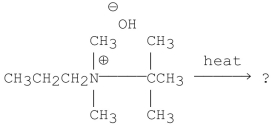
A)CH3CH CH2
CH2
B)
C)CH3CH2CH CH2
CH2
D)
E)

A)CH3CH
 CH2
CH2B)

C)CH3CH2CH
 CH2
CH2D)

E)


Unlock Deck
Unlock for access to all 115 flashcards in this deck.
Unlock Deck
k this deck
27
Name the following compound. 
A)isobutylpropylamine
B)isopentylpropylamine
C)n-butylpropylamine
D)tert-butylpropylamine
E)sec-butylpropylamine

A)isobutylpropylamine
B)isopentylpropylamine
C)n-butylpropylamine
D)tert-butylpropylamine
E)sec-butylpropylamine

Unlock Deck
Unlock for access to all 115 flashcards in this deck.
Unlock Deck
k this deck
28
What is the product of the following reaction? 
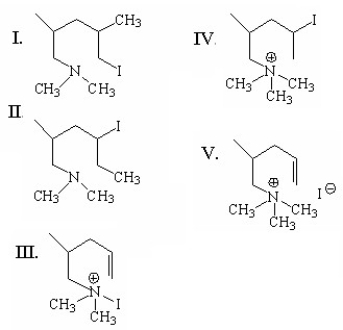
A)I
B)II
C)III
D)IV
E)V


A)I
B)II
C)III
D)IV
E)V

Unlock Deck
Unlock for access to all 115 flashcards in this deck.
Unlock Deck
k this deck
29
Provide the major organic products of the reaction shown. 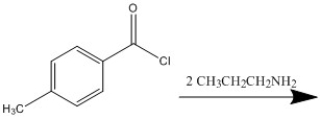


Unlock Deck
Unlock for access to all 115 flashcards in this deck.
Unlock Deck
k this deck
30
Provide the major organic product of the reaction shown. 


Unlock Deck
Unlock for access to all 115 flashcards in this deck.
Unlock Deck
k this deck
31
Which of the following is a quaternary ammonium ion?
A)
B)
C)
D)
E)
A)

B)

C)

D)

E)


Unlock Deck
Unlock for access to all 115 flashcards in this deck.
Unlock Deck
k this deck
32
Draw the structures of piperidine and morpholine and explain their relative basicities.

Unlock Deck
Unlock for access to all 115 flashcards in this deck.
Unlock Deck
k this deck
33
Give the major product for the following reaction. 
A)
B)
C)
D)
E)

A)

B)

C)

D)

E)


Unlock Deck
Unlock for access to all 115 flashcards in this deck.
Unlock Deck
k this deck
34
Provide an acceptable name for the compound shown below. 


Unlock Deck
Unlock for access to all 115 flashcards in this deck.
Unlock Deck
k this deck
35
Give the major product for the following reaction. 
A)
B)
C)
D)
E)

A)

B)

C)

D)

E)


Unlock Deck
Unlock for access to all 115 flashcards in this deck.
Unlock Deck
k this deck
36
Draw 2-methylpyrrolidine.

Unlock Deck
Unlock for access to all 115 flashcards in this deck.
Unlock Deck
k this deck
37
Provide the major organic product of the reaction shown. 


Unlock Deck
Unlock for access to all 115 flashcards in this deck.
Unlock Deck
k this deck
38
Name the following compound. 
A)1-methyl-N-propyl-1-propananmine
B)N-propyl-2-butanamine
C)3-methyl-4-heptanamine
D)1-ethyl-N-propyl-1-ethanamine
E)1'-methylpropyl-1-propanamine

A)1-methyl-N-propyl-1-propananmine
B)N-propyl-2-butanamine
C)3-methyl-4-heptanamine
D)1-ethyl-N-propyl-1-ethanamine
E)1'-methylpropyl-1-propanamine

Unlock Deck
Unlock for access to all 115 flashcards in this deck.
Unlock Deck
k this deck
39
Provide the IUPAC name of the compound shown. 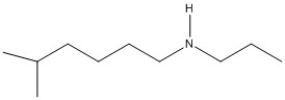


Unlock Deck
Unlock for access to all 115 flashcards in this deck.
Unlock Deck
k this deck
40
Draw the structure of the aziridinium ion and explain why its pKa is lower than a typical secondary ammonium ion.

Unlock Deck
Unlock for access to all 115 flashcards in this deck.
Unlock Deck
k this deck
41
Provide the structure of the major organic product in the reaction below. 


Unlock Deck
Unlock for access to all 115 flashcards in this deck.
Unlock Deck
k this deck
42
Provide the major organic product(s)of the reaction below. 


Unlock Deck
Unlock for access to all 115 flashcards in this deck.
Unlock Deck
k this deck
43
Provide the structure of the major organic product in the reaction below. 


Unlock Deck
Unlock for access to all 115 flashcards in this deck.
Unlock Deck
k this deck
44
What is the major alkene produced in the following Cope elimination? 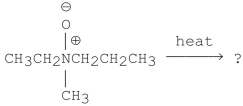
A)CH2 CH2
CH2
B)CH3CH CH2
CH2
C)CH3CH2N CH2
CH2
D)CH3CH2N O
O
E)CH3CH2CH2N O
O

A)CH2
 CH2
CH2B)CH3CH
 CH2
CH2C)CH3CH2N
 CH2
CH2D)CH3CH2N
 O
OE)CH3CH2CH2N
 O
O
Unlock Deck
Unlock for access to all 115 flashcards in this deck.
Unlock Deck
k this deck
45
Give all organic products that result when the compound below is heated. Label the major and minor products. 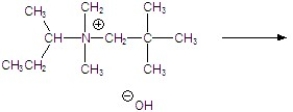


Unlock Deck
Unlock for access to all 115 flashcards in this deck.
Unlock Deck
k this deck
46
Give all organic products for the following reaction. 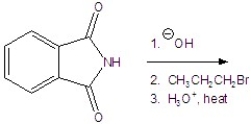
A)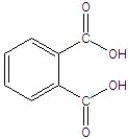
B)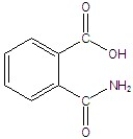
C)
D)
E)

A)

B)

C)

D)

E)


Unlock Deck
Unlock for access to all 115 flashcards in this deck.
Unlock Deck
k this deck
47
What is the major alkene formed in the following reaction? 
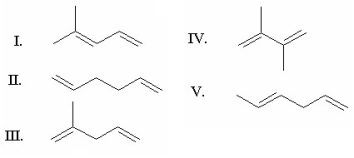
A)I
B)II
C)III
D)IV
E)V


A)I
B)II
C)III
D)IV
E)V

Unlock Deck
Unlock for access to all 115 flashcards in this deck.
Unlock Deck
k this deck
48
Give all organic products for the following reaction. Label the major and minor products. 


Unlock Deck
Unlock for access to all 115 flashcards in this deck.
Unlock Deck
k this deck
49
Which of the following aromatic compounds is the most stable? 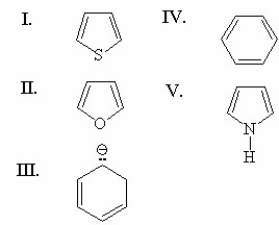
A)I
B)II
C)III
D)IV
E)V

A)I
B)II
C)III
D)IV
E)V

Unlock Deck
Unlock for access to all 115 flashcards in this deck.
Unlock Deck
k this deck
50
Provide the major organic product(s)of the reaction below. 


Unlock Deck
Unlock for access to all 115 flashcards in this deck.
Unlock Deck
k this deck
51
Give the major product for the following reaction. 
A)CH3CH2NH2
B)CH3CH2CH2NH2
C)CH3CH2CH2NHNH2
D)CH3CH2CH2N NH
NH
E)CH3CH2CH2CH2NH2

A)CH3CH2NH2
B)CH3CH2CH2NH2
C)CH3CH2CH2NHNH2
D)CH3CH2CH2N
 NH
NHE)CH3CH2CH2CH2NH2

Unlock Deck
Unlock for access to all 115 flashcards in this deck.
Unlock Deck
k this deck
52
Provide the structure of the major organic product in the reaction below. 


Unlock Deck
Unlock for access to all 115 flashcards in this deck.
Unlock Deck
k this deck
53
Provide the structure of the major organic product in the reaction below. 


Unlock Deck
Unlock for access to all 115 flashcards in this deck.
Unlock Deck
k this deck
54
Give the major product for the following reaction. 
A)CH3CH2NH2
B)CH3CH2CH2NH2
C)CH3CH2CH2NHNH2
D)CH3CH2CH2N NH
NH
E)CH3CH2CH2CH2NH2

A)CH3CH2NH2
B)CH3CH2CH2NH2
C)CH3CH2CH2NHNH2
D)CH3CH2CH2N
 NH
NHE)CH3CH2CH2CH2NH2

Unlock Deck
Unlock for access to all 115 flashcards in this deck.
Unlock Deck
k this deck
55
Give the major product for the following reaction. 


Unlock Deck
Unlock for access to all 115 flashcards in this deck.
Unlock Deck
k this deck
56
Provide the major organic product(s)of the reaction below. 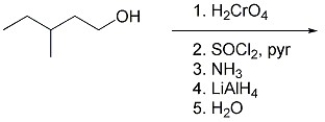


Unlock Deck
Unlock for access to all 115 flashcards in this deck.
Unlock Deck
k this deck
57
Provide the major organic product(s)of the reaction below. 


Unlock Deck
Unlock for access to all 115 flashcards in this deck.
Unlock Deck
k this deck
58
Provide the major organic product(s)of the reaction below. 


Unlock Deck
Unlock for access to all 115 flashcards in this deck.
Unlock Deck
k this deck
59
Provide the structure of the major organic product in the reaction below. 


Unlock Deck
Unlock for access to all 115 flashcards in this deck.
Unlock Deck
k this deck
60
Which of the following compounds is the most reactive toward electrophilic aromatic substitution? 
A)I
B)II
C)III
D)IV
E)V

A)I
B)II
C)III
D)IV
E)V

Unlock Deck
Unlock for access to all 115 flashcards in this deck.
Unlock Deck
k this deck
61
When benzofuran is treated with acetic anhydride, the major organic product is ________.
A)2-acetylbenzofuran
B)3-acetylbenzofuran
C)4-acetylbenzofuran
D)5-acetylbenzofuran
E)7-acetylbenzofuran
A)2-acetylbenzofuran
B)3-acetylbenzofuran
C)4-acetylbenzofuran
D)5-acetylbenzofuran
E)7-acetylbenzofuran

Unlock Deck
Unlock for access to all 115 flashcards in this deck.
Unlock Deck
k this deck
62
Which of the following lists the correct order of reactivity of the substrates in electrophilic aromatic substitution reactions?
A)thiophene > pyrrole > furan > benzene
B)benzene > furan > thiophene > pyrrole
C)furan > pyrrole > benzene > thiophene
D)benzene > pyrrole > thiophene > furan
E)pyrrole > furan > thiophene > benzene
A)thiophene > pyrrole > furan > benzene
B)benzene > furan > thiophene > pyrrole
C)furan > pyrrole > benzene > thiophene
D)benzene > pyrrole > thiophene > furan
E)pyrrole > furan > thiophene > benzene

Unlock Deck
Unlock for access to all 115 flashcards in this deck.
Unlock Deck
k this deck
63
What is the major product of the following reaction? 
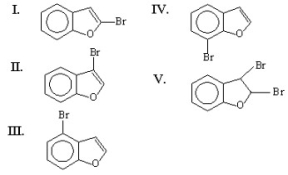
A)I
B)II
C)III
D)IV
E)V


A)I
B)II
C)III
D)IV
E)V

Unlock Deck
Unlock for access to all 115 flashcards in this deck.
Unlock Deck
k this deck
64
When pyrrole undergoes electrophilic aromatic substitution, at which position does substitution occur?
A)2-position
B)3-position
C)4-position
A)2-position
B)3-position
C)4-position

Unlock Deck
Unlock for access to all 115 flashcards in this deck.
Unlock Deck
k this deck
65
Provide the major organic product(s)of the reaction below. 


Unlock Deck
Unlock for access to all 115 flashcards in this deck.
Unlock Deck
k this deck
66
In the following question choose the best answer. The most basic amine. 
A)I
B)II
C)III
D)IV

A)I
B)II
C)III
D)IV

Unlock Deck
Unlock for access to all 115 flashcards in this deck.
Unlock Deck
k this deck
67
Show how the dipole moments are oriented in pyrrolidine and pyrrole, and explain why they are oriented in opposite directions.

Unlock Deck
Unlock for access to all 115 flashcards in this deck.
Unlock Deck
k this deck
68
What is the major product of the following reaction? 
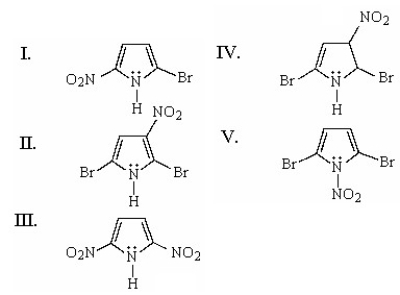
A)I
B)II
C)III
D)IV
E)V


A)I
B)II
C)III
D)IV
E)V

Unlock Deck
Unlock for access to all 115 flashcards in this deck.
Unlock Deck
k this deck
69
Provide the systematic name for the compound below. 


Unlock Deck
Unlock for access to all 115 flashcards in this deck.
Unlock Deck
k this deck
70
Give the major product for the following reaction. 
A)
B)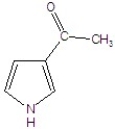
C)
D)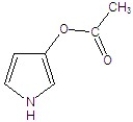
E)

A)

B)

C)

D)

E)


Unlock Deck
Unlock for access to all 115 flashcards in this deck.
Unlock Deck
k this deck
71
Give the major product for the following reaction. 
A)
B)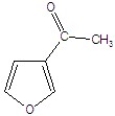
C)
D)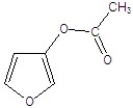
E)

A)

B)

C)

D)

E)


Unlock Deck
Unlock for access to all 115 flashcards in this deck.
Unlock Deck
k this deck
72
Which of the following compounds is not aromatic? 
A)I
B)II
C)III
D)IV

A)I
B)II
C)III
D)IV

Unlock Deck
Unlock for access to all 115 flashcards in this deck.
Unlock Deck
k this deck
73
Indicate whether the following molecule is aromatic, antiaromatic, or nonaromatic. 


Unlock Deck
Unlock for access to all 115 flashcards in this deck.
Unlock Deck
k this deck
74
Propose a plausible mechanism for the following reaction. 


Unlock Deck
Unlock for access to all 115 flashcards in this deck.
Unlock Deck
k this deck
75
Provide the structure of the major organic product in the reaction below. 


Unlock Deck
Unlock for access to all 115 flashcards in this deck.
Unlock Deck
k this deck
76
Which of the following compounds is indole? 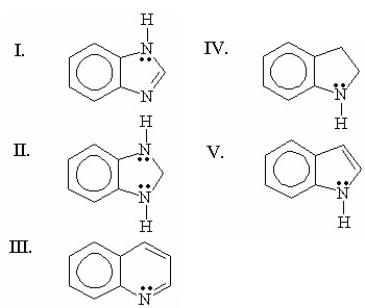
A)I
B)II
C)III
D)IV
E)V

A)I
B)II
C)III
D)IV
E)V

Unlock Deck
Unlock for access to all 115 flashcards in this deck.
Unlock Deck
k this deck
77
Provide the major organic product of the reaction shown. 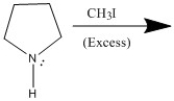


Unlock Deck
Unlock for access to all 115 flashcards in this deck.
Unlock Deck
k this deck
78
Circle the stronger base in the pair below, and briefly explain your choice. 


Unlock Deck
Unlock for access to all 115 flashcards in this deck.
Unlock Deck
k this deck
79
Provide the major organic product(s)of the reaction below. 


Unlock Deck
Unlock for access to all 115 flashcards in this deck.
Unlock Deck
k this deck
80
What is the major product of the following reaction? 
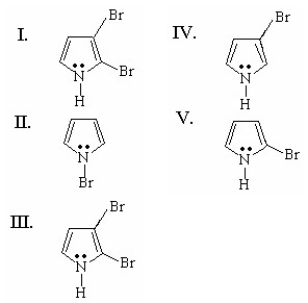
A)I
B)II
C)III
D)IV
E)V


A)I
B)II
C)III
D)IV
E)V

Unlock Deck
Unlock for access to all 115 flashcards in this deck.
Unlock Deck
k this deck


